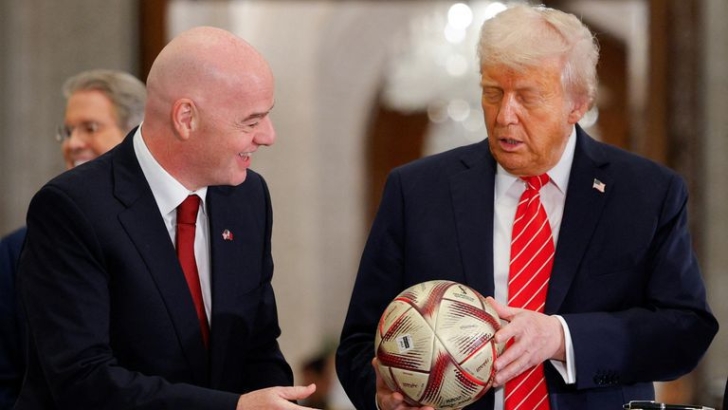As the United States prepares to co-host the 2026 FIFA Men’s World Cup alongside Canada and Mexico, concerns are mounting over how new U.S. immigration policies could impact the global event.
The tournament, set to be the largest World Cup in history with 104 matches across 16 host cities, is expected to draw millions of fans, players, media, and officials from around the world.
However, recent changes to U.S. immigration laws, including travel bans and stringent visa restrictions, threaten to disrupt the inclusivity and smooth operation of this highly anticipated event.
While challenges loom, FIFA and human rights organizations are advocating for proactive measures to ensure the tournament remains a celebration of global unity.
Immigration Policies and Their Potential Impact
The current U.S. administration’s immigration policies, including travel bans targeting specific countries, could significantly hinder participation in the 2026 World Cup. Fans, extended family members, media personnel, and other participants from affected nations may face delays or outright denials when applying for visas. These restrictions could limit the ability of international supporters to attend matches, potentially dampening the vibrant, multicultural atmosphere that defines the World Cup.
Beyond logistical concerns, there are fears of discrimination against certain groups. Policies perceived as targeting immigrants, LGBTI individuals, or other marginalized communities could create an unwelcoming environment for visitors.
Additionally, restrictions on freedom of expression and peaceful assembly may further complicate the event, raising concerns about whether attendees can fully engage in the celebratory spirit of the tournament without fear of repercussions.
Exemptions offer some relief
One silver lining is the exemption of qualifying teams from travel bans, as outlined in an executive order from President Trump.
This ensures that players and essential staff from participating nations can enter the U.S. to compete, regardless of their country of origin.
However, this exemption does not extend to fans, media, or extended family members, leaving significant gaps in accessibility that could affect the overall experience of the tournament.
Calls for Action to Ensure an inclusive World Cup
FIFA, in collaboration with human rights organizations, is pushing for solutions to mitigate these challenges and uphold the World Cup ’ s reputation as a global, inclusive event. Several key recommendations have emerged:
1 Clear Benchmarks and Timelines: FIFA and advocacy groups are urging the U.S. government to establish transparent benchmarks and timelines for revising immigration policies.
These changes would prioritize immigrants’ rights and ensure that fans and participants from all nations can attend the tournament without undue barriers.
2 Protection for Vulnerable Groups: There is a strong call to safeguard the rights of LGBTI individuals, journalists, and other vulnerable groups. Creating a welcoming environment for all attendees, regardless of identity or background, is essential to maintaining the World Cup’s spirit of unity.
3 Transparent Grievance Mechanisms: To address potential issues, advocates are pushing for independent and accessible grievance mechanisms. These systems would allow individuals to report discrimination or other concerns and seek remedies promptly, ensuring accountability throughout the event.
Balancing challenges with opportunity
The 2026 World Cup represents a historic opportunity for the U.S. to showcase its hospitality and organisational prowess on a global stage. With matches set to take place in iconic venues like Los Angeles’ SoFi Stadium and New York’s MetLife Stadium, the tournament is poised to be a landmark moment for soccer in North America. However, the success of the event hinges on the ability to address immigration-related challenges effectively.
By working collaboratively with FIFA, local organizers, and human rights groups, the U.S. has a chance to demonstrate its commitment to inclusivity. Implementing the proposed policy changes could not only ensure a smoother World Cup experience but also set a precedent for how global sporting events can navigate complex political landscapes.
Looking ahead
While the new U.S. immigration laws present undeniable hurdles for the 2026 World Cup, the proactive efforts of FIFA and advocacy groups offer hope for a resolution. By prioritizing accessibility, protecting vulnerable groups, and fostering an environment of openness, the U.S. can host a tournament that lives up to the World Cup’s legacy of bringing people together through the beautiful game.
As preparations continue, the global soccer community will be watching closely to see how the U.S. rises to the challenge, ensuring that the 2026 World Cup is a triumph both on and off the pitch.

